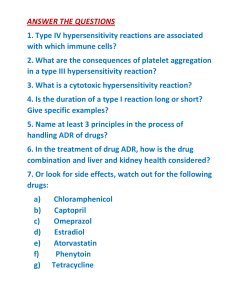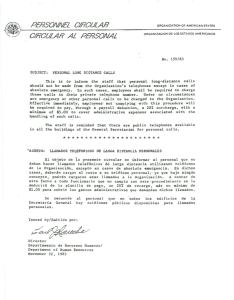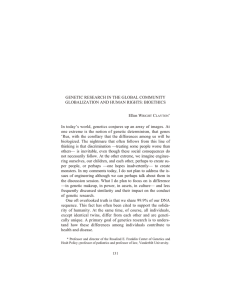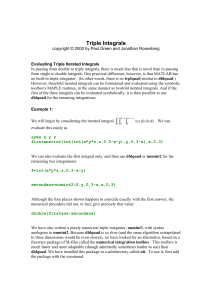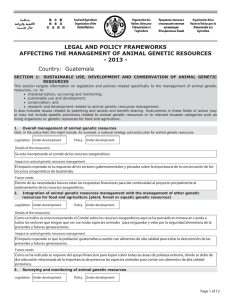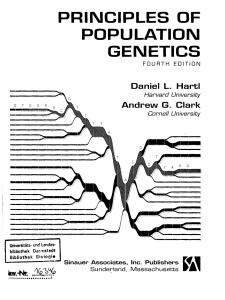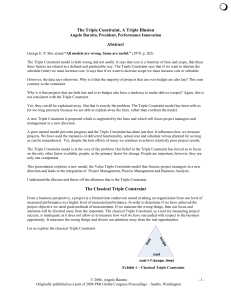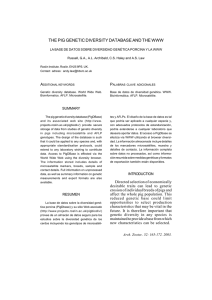(Aplicacions de la farmacogenètica a la pràctica clínica) pdf 14 11
Anuncio
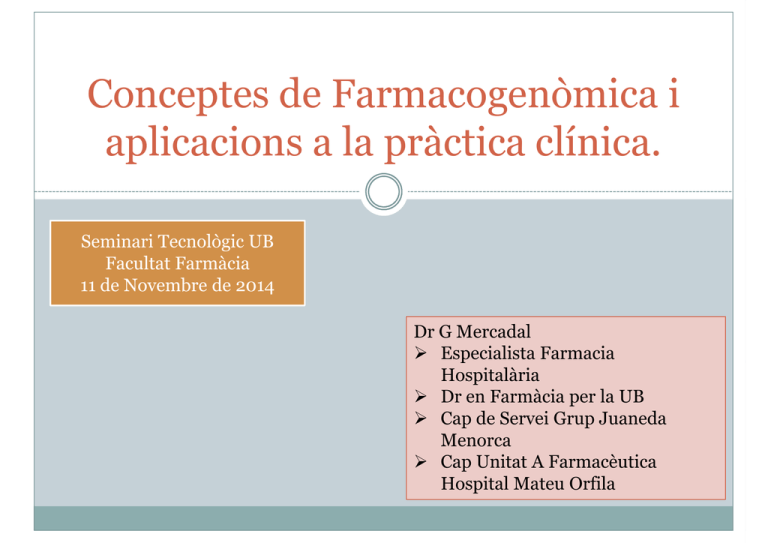
Conceptes de Farmacogenòmica i aplicacions a la pràctica clínica. Seminari Tecnològic UB Facultat Farmàcia 11 de Novembre de 2014 Dr G Mercadal Especialista Farmacia Hospitalària Dr en Farmàcia per la UB Cap de Servei Grup Juaneda Menorca Cap Unitat A Farmacèutica Hospital Mateu Orfila 1.Conceptos Farmacogenómica y Farmacogenética 2. Principales polimorfismos –Transportadores –Dianas terapeuticas –Receptores 3. Biomarcadoresy entidades reguladoras (FDA/EMA) 4. De la farmacogenética la práctica clínica: Aplicaciones actuales 4a- Proyectos multicéntricos de la SEFH(Sociedad Española de Farmacia Hospitalaria) 4b-Casos prácticos de aplicación de la farmacogenética en pacientes individuales ( pacientes polimedicados, pacientes psiquiátricos, pacientes oncológicos....) Precs i preguntes La medicina genómica aporta el conocimiento, de la predisposición genética a tener enfermedades. Un tratamiento preventivo precoz, y unos hábitos de vida adecuados, permiten establecer una prevención antes de la aparición de los síntomas y efectos indeseados. Aplicar correctamente la medicina genómica, permitirá vivir más años y con mejor calidad de vida. Permite prevenir y tratar las enfermedades desde una perspectiva científica, distinta de la que se ha mantenido a lo largo del siglo XX. BRCA1 i BRCA 2 Mujeres con mutación o alteración en el BRCA1 i BRCA 2, tienen un riesgo mayor de cancer de mama y ovario 60% riesgo vs 12% mujeres en general 5-10% de los casos con cancer de mama tienen genes anómalos BRCA1 i BRCA 2. - Identificar y cartografiar los aproximadamente 20.000-25.000 genes del genoma humano -3.000 millones de $ -Incia 1990 i es va presentar el 2003 Dr James D. Watson, co-discoverer of the DNA helix and father of the Human Genome Project http://www.genome.gov/ TODAY Discovery of more than 1,800 disease genes. There are now more than 2,000 genetic tests for human conditions. These tests enable patients to learn their genetic risks for disease and also help healthcare professionals to diagnose disease. 350 biotechnology-based products resulting from the Human Genome Project are currently in clinical trials. One major step toward such comprehensive understanding was the development in 2005 of the HapMap (http://hapmap.ncbi.nlm.nih.gov/), which is a catalog of common genetic variation, or haplotypes, in the human genome and yielded impressive results in finding genetic factors involved in conditions ranging from age-related blindness to obesity. . Pharmacogenomics is a field that looks at how genetic variation affects an individual’s response to a drug. “At the moment, the biggest challenge is in data analysis. We can generate large amounts of data very inexpensively, but that overwhelms our capacity to understand it” Dr Eric Green 11/02/2011 TOMORROW The Cancer Genome Atlas (http://cancergenome.nih.gov/), aims to identify all the genetic abnormalities seen in 50 major types of cancer. As a result drugs that are much more effective and cause fewer side effects than those available today. NIH is striving to cut the cost of sequencing an individual’s genome to $1,000 or less. Having one’s complete genome sequence will make it easier to diagnose, manage and treat many diseases. Individualized analysis based on each person’s genome will lead to a powerful form of preventive, personalized and preemptive medicine. By tailoring recommendations to each person’s DNA, health care professionals will be able to work with individuals to focus efforts on the specific strategies — from diet to high-tech medical surveillance — that are most likely to maintain health for that particular individual. The increasing ability to connect DNA variation with non-medical conditions, such as intelligence and personality traits, will challenge society, making the role of ethical, legal and social implications research more important than ever. Però realment… Hem de preocupar-nos tant, i fer tants estudis, assajos clinics, proves… per assegurar que em dónen exactament es medicament que millor “s’adapta” a nes meu codi genètic? Hospitalizations Adverse drug events ADR as cause of hospitalization ADR during hospitalization Serious ADR Fatal ADR % 2,7-15,7% 16.88 % (CI95% of 13.56,20.12) 6.7% (95% CI 5.2%-8.2%) 0.32% (95% CI, 0.23%-0.41%) Costos events adversos per medicació US$1.56 billion in direct hospital costs per year in the US,8 Drug-related morbidity may lead to US$136.8 billion in indirect costs. Each ADR may represent a cost of US$2500 per patien …si que ens ho hem de fer mirar… Exemple d’aplicacions de la farmacogenètica Aplicacions per optimitzar efectivitat i seguretat Aplicació de la farmacogenètica per evitar event advers greu: hipersensibilitat per abacavir Aplicació de farmacogenètica amb objetcius d’eficència sanitària. Evidencias con telaprevir y boceprevir según IL28B Triple terapia en el tratamiento de VHC Cost triple teràpia VHC Cost 24 setmanes triple terapia: 30.488,46 € Cost 48 setmanes de triple teràpia: 35.376,72 € Cost 48 setmanes de biteràpia: 9.776,52 € Si sa incidència d’hepatitis C a Espanya es de un 2,5 %, quin cost tindria tractar a tothom amb triple teràpia?... 27.000 milions €( 1/10 parte del PIB Espanya…) Sa farmacogenètica permet optimitzar el tractament i decidir qui necessita bi i qui triple terràpia.


